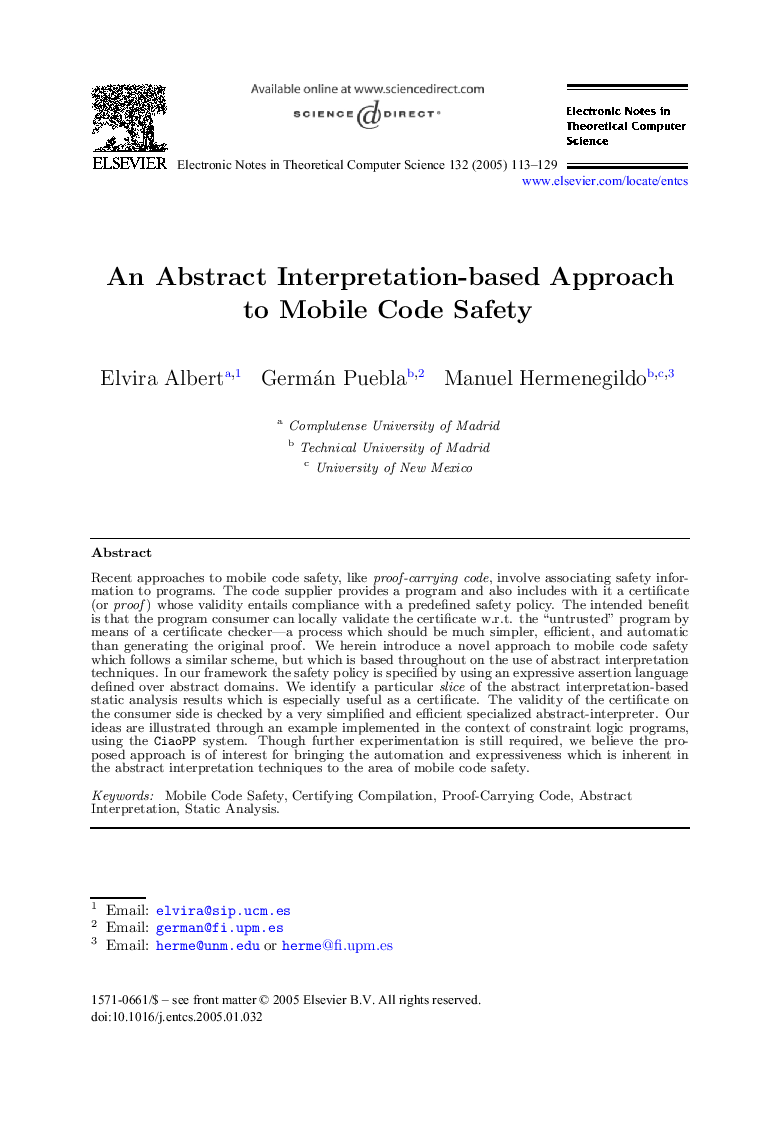| Article ID | Journal | Published Year | Pages | File Type |
|---|---|---|---|---|
| 10329290 | Electronic Notes in Theoretical Computer Science | 2005 | 17 Pages |
Abstract
Recent approaches to mobile code safety, like proof-carrying code, involve associating safety information to programs. The code supplier provides a program and also includes with it a certificate (or proof) whose validity entails compliance with a predefined safety policy. The intended benefit is that the program consumer can locally validate the certificate w.r.t. the “untrusted” program by means of a certificate checker-a process which should be much simpler, efficient, and automatic than generating the original proof. We herein introduce a novel approach to mobile code safety which follows a similar scheme, but which is based throughout on the use of abstract interpretation techniques. In our framework the safety policy is specified by using an expressive assertion language defined over abstract domains. We identify a particular slice of the abstract interpretation-based static analysis results which is especially useful as a certificate. The validity of the certificate on the consumer side is checked by a very simplified and efficient specialized abstract-interpreter. Our ideas are illustrated through an example implemented in the context of constraint logic programs, using the CiaoPP system. Though further experimentation is still required, we believe the pro- posed approach is of interest for bringing the automation and expressiveness which is inherent in the abstract interpretation techniques to the area of mobile code safety.
Related Topics
Physical Sciences and Engineering
Computer Science
Computational Theory and Mathematics
Authors
Elvira Albert, Germán Puebla, Manuel Hermenegildo,
